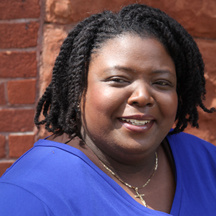Making a concerted effort to preserve your and your family’s history “is a great heritage for those who are not here yet,” proclaimed Morgan State University archivist Dr. Ida Jones. For single people with no apparent direct heirs, she suggested creating packages for each niece and nephew. “One day they will wake up or their kids will want to know who their ancestors are,” she added.
Having people who are living as your source of information can be a relatively easy place to start to the task; finding the time to complete the task can be a challenge. Additionally explained the Howard University graduate, recovering the past of Black families have its unique challenges since there were few things that Blacks historically has owned that they could pass on to the next generation. “You didn’t even own yourself,” Jones said emphatically.
Even obtaining the oral histories of the living can be tough admits Jones including from people not wanting to share what they feel were indiscretions. She recalled going through her mother’s pictures only to learn that she had once been briefly married to man other than Jones’ father. Michael Pulliam, who attended the session, shared that the difficulty was on his part as the interviewer and his not wanting to make his 100-year-old elder feel as though he wanted to capture her life before she passes.
As the group consistently mentioned women as the source or potential source of family information, Jones confirmed, “Women tend to the keepers of the culture.” Jones also suggested that much of your initial family history search will focus on why and how people landed where they did. Historically, most people are forced to move because, for example, economic reasons beyond their control. “The pushing is often not a very nice experience to recall; a lot of stories such as why a person or family moved can be very emotional,” Jones reasoned.
Preserving Your History
Praising the Past


Materials such as yearbooks, pictures, funeral programs, and Bibles and oral interviews are good sources of data. She urged family sleuths to restore photographs and other papers. She says, “Otherwise, they will only get worse.”
Joining and quizzing local historical societies are also great tactics to employ to get advice from public servants who often want to help, says Jones, who just recently released her fourth biography, "Baltimore Civil Rights Leader, Victorine Quille Adams and the Power of the Ballot."
For single people with no apparent direct heirs, she suggested creating packages for each niece and nephew. “One day they will wake up or their kids will want to know who their ancestors are,” she added.
Mesi Walton, who also attended the session, says she came to get a better idea how to “preserve my family history and I did.” Jones said researching the life of Adams was relatively easy since, as a teacher, Adams knew the value of saving documents. “She saved documentation of all the organizations she belonged to,” said Jones. Adams donated her papers to Morgan State University Archives where the institutions is preserving them, Jones first learned of her, and she has now brought Adam's existence back to life.
Note: Jones will attend the 2019 Afro-American Historical and Genealogical Society (AAHGS) Annual Conference & Exposition, October 10-October 12 in College Park, MD.
Joining and quizzing local historical societies are also great tactics to employ to get advice from public servants who often want to help, says Jones, who just recently released her fourth biography, "Baltimore Civil Rights Leader, Victorine Quille Adams and the Power of the Ballot."
For single people with no apparent direct heirs, she suggested creating packages for each niece and nephew. “One day they will wake up or their kids will want to know who their ancestors are,” she added.
Mesi Walton, who also attended the session, says she came to get a better idea how to “preserve my family history and I did.” Jones said researching the life of Adams was relatively easy since, as a teacher, Adams knew the value of saving documents. “She saved documentation of all the organizations she belonged to,” said Jones. Adams donated her papers to Morgan State University Archives where the institutions is preserving them, Jones first learned of her, and she has now brought Adam's existence back to life.
Note: Jones will attend the 2019 Afro-American Historical and Genealogical Society (AAHGS) Annual Conference & Exposition, October 10-October 12 in College Park, MD.
Advertisers | Contact Us | Events | Links | Media Kit | Our Company | Payments Pier
Press Room | Print Cover Stories Archives | Electronic Issues and Talk Radio Archives | Writer's Guidelines






